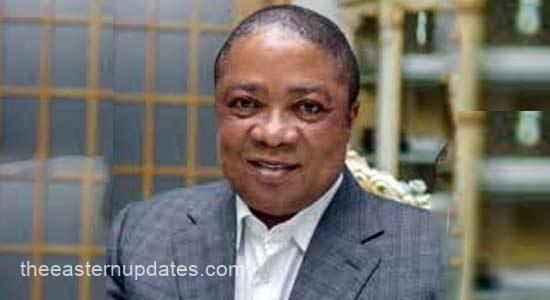|
Listen to article
|
The Court of Appeal sitting in Lagos has been told by the Economic and Financial Crimes Commission (EFCC) to dismiss an appeal filed by the Chairman of Ibeto Energy Development Company, Cletus Ibeto, seeking to nullify the bench warrant issued against him by a Lagos State High Court.
The EFCC told the three man panel of appeal led by Justice Muhammed Mustapha that the lower court has the power to order the arrest of the businessman, notwithstanding that he filed a preliminary objection challenging its jurisdiction to trial him.
The other members of the panel are Justice Folashade Ojo and Justice Abdullahi Mahmud Bayero.
On November 3, 2023, Justice Ismail Ijelu of the Lagos High Court, Ikeja had ordered Ibeto’s arrest after he failed to appear before the court on four different occasions to take his plea over an alleged N4.8 billion fraud despite repeated hearing notices served on him.
The anti-graft agency had charged the defendant alongside his companies, Ibeto Energy Development Company and Odoh Holdings Ltd, on a 10-count charge of conspiracy, fraud, forgery and fraudulent use of documents.
Read Also: Land Fraud, Cybercrime Rising In South East, EFCC Laments
Through his lawyer, Senior Advocate of Nigeria, Chief Wole Olanipekun, the defendant filed a preliminary objection challenging the jurisdiction of the court to hear him.
He argued that his preliminary objection raised the issue of constitutional territorial and that it is of such a threshold nature that it demands to be heard and determined before arraignment.
He also contended that his presence in court and his arraignment are not mandatory or preconditions for the hearing of a preliminary objection touching on the court’s jurisdiction, which was already ripe for adjudication.
The appellant, therefore, asked the Court Appeal to set aside or vacate the warrant of arrest and also strike out the suit before the lower court.
But the counsel for the EFCC, Senior Advocate of Nigeria, Rotimi Jacobs, argued that it is only when the appellant appears before the court and takes his plea to the charge that issues are joined in a criminal trial and that until this happens, he is technically outside the court’s jurisdiction.
Jacobs also submitted that the appearance of the appellant’s counsel is insufficient because the law empowers the court when satisfied that the defendant is absent without a valid excuse, to issue a bench warrant against him to secure his presence in court.
The EFCC prosecutor further stated that the intention of the lawmaker in enacting section 396 (2) of Administration of Criminal Justice Act, (ACJA) is that any objection regarding the validity of a charge should only be raised after the plea of the defendant has been taken.
“It is not the intention of the lawmaker to give a Defendant who is challenging the validity of an Information or a charge preferred against him the liberty to stay in his house and brief a counsel to appear in court on his behalf without him appearing in court.
“It is clear that the lower court was patient with the Appellant enough, but the Appellant deliberately refused to appear before the court. It is, therefore, unfair for the Appellant to argue that the lower court disregarded its record. The Appellant and the other defendants delayed the proceedings by their deliberate refusal to attend the court’s proceedings.
During Monday’s proceedings, Jacobs also told the court that Chief Ibeto had approached the anti-graft agency seeking to enter a plea bargain arrangement and pay back the money he allegedly obtained from the nominal complainant, Chief Daniel Chukwudozie.
Chief Wole Olanipekun however denied knowledge of the discussion; he told the appellate court that his client told him to continue with the appeal.
Following the development, the court fixed May 7 for the adoption of the appeal by the lawyers.
























